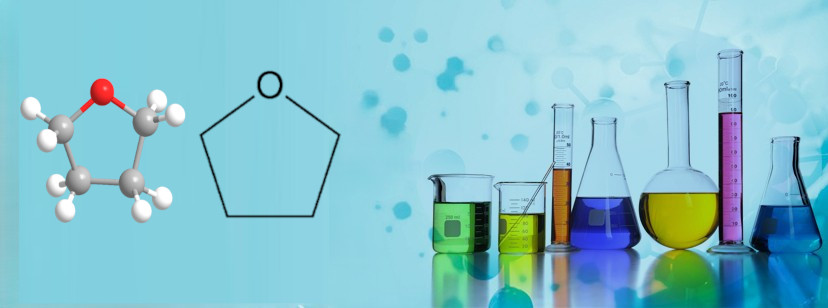Tetrahydrofuran

| CHEMICAL IDENTITY | |
| PRODUCT NAME | TETRAHYDROFURAN |
| CAS NO. | 109-99-9 |
| SYNONYM | THF, Tetramethylene oxide, Oxolane |
| EINECS NO. | 203-726-8 |
| STRUCTURAL FORMULA | C4H8O |
| MOLECULAR WT. | 72.10 |
| SPECIFIC GRAVITY (20/4OC) | 0.886 -0.889 |
| BOILING POINT OC | 66 |
| FREEZING POINT | 108.5 |
| FLASH POINT OC | -17 |
| SPECIFICATIONS | |
| DESCRIPTION | CLEAR COLOURLESS LIQUID |
| PURITY BY GC | NLT 99.90% |
| DENSITY @ROOM TEMPERATURE | 0.8800 – 0.8900 |
| MOISTURE CONTENT (BY KF) | NMT 500 PPM |
| ACIDITY ( AS AN ACETIC ACID) | NMT 50 PPM |
| PEROXIDE CONTENT | NMT 50 PPM |
| SOLUBILITY IN 10% WATER | SHOULD BE MISCIBLE |
PACKING
180 Kgs MS Drum / Tanker.
Description
Tetrahydrofuran (THF) is a clear, colorless, low viscosity liquid with an ether-like odor. THF exhibits high volatility and an extremely low freezing point. At 20°C, THF is completely miscible with H2O.
Applications
Surface COATING, ADHESIVES, Film CASTING, Printing INKS, Vinyl films & CELLOPHANE, Magnetic Tape.
Pharmaceutical Solvent Applications.
THF is frequently utilized as a solvent in many pharmaceutical synthetic procedures because of its broad solvency for polar and non- polar compounds. THF is particularly capable of dissolving many ionic species and organometallics which are commonly used in specialty syntheses. In many cases, THF makes higher yields and faster reaction rates possible. In addition, THF’s high volatility and very high purity facilitate solvent removal and recovery without leaving residues in the desired product.
Grignard reagents
Also, THF is a preferred solvent for anionic polymerization.
Country of Origin: lndia.
Stability, Storage & Handling:
THF has a flammable DOT hazard class. As a result, heat, sparks, open flames, open containers and poor ventilation are conditions to be avoided. Materials to avoid include oxidizing agents and strong acids and bases. Care should be taken to store THF under cool, dry conditions due to its volatile and flammable nature. While THF as supplied contains an inhibitor, heat sensitive peroxides can form if stored for long periods of time. Explosions have been known to occur when uninhibited THF was heated.
(We believe the above information to be correct but we do not present it as all inclusive & as such should be used as guide.)
